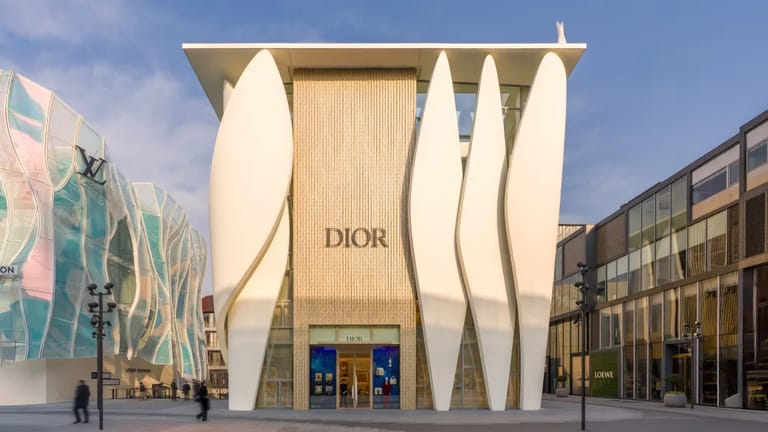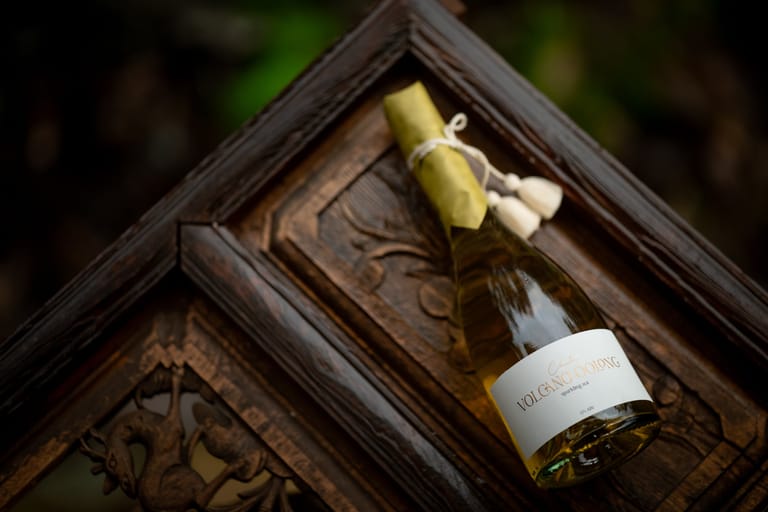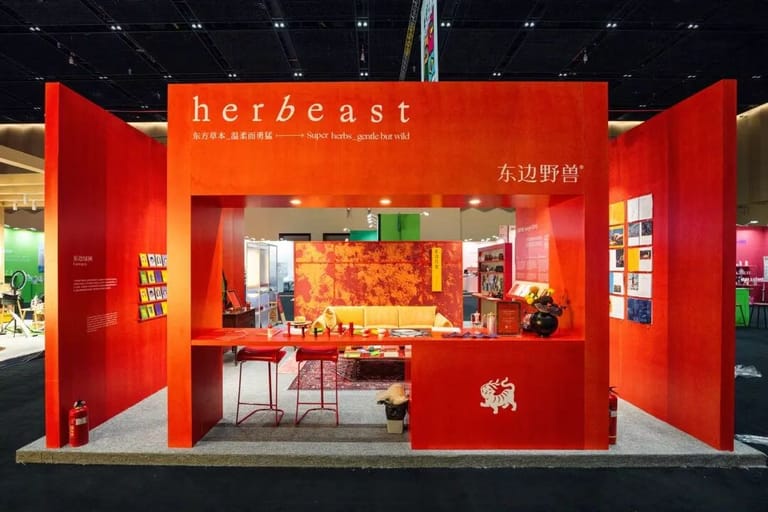Le Labo Finds Home in Beijing Courtyard
By
Huiyan Chen

Published on
June 3, 2025
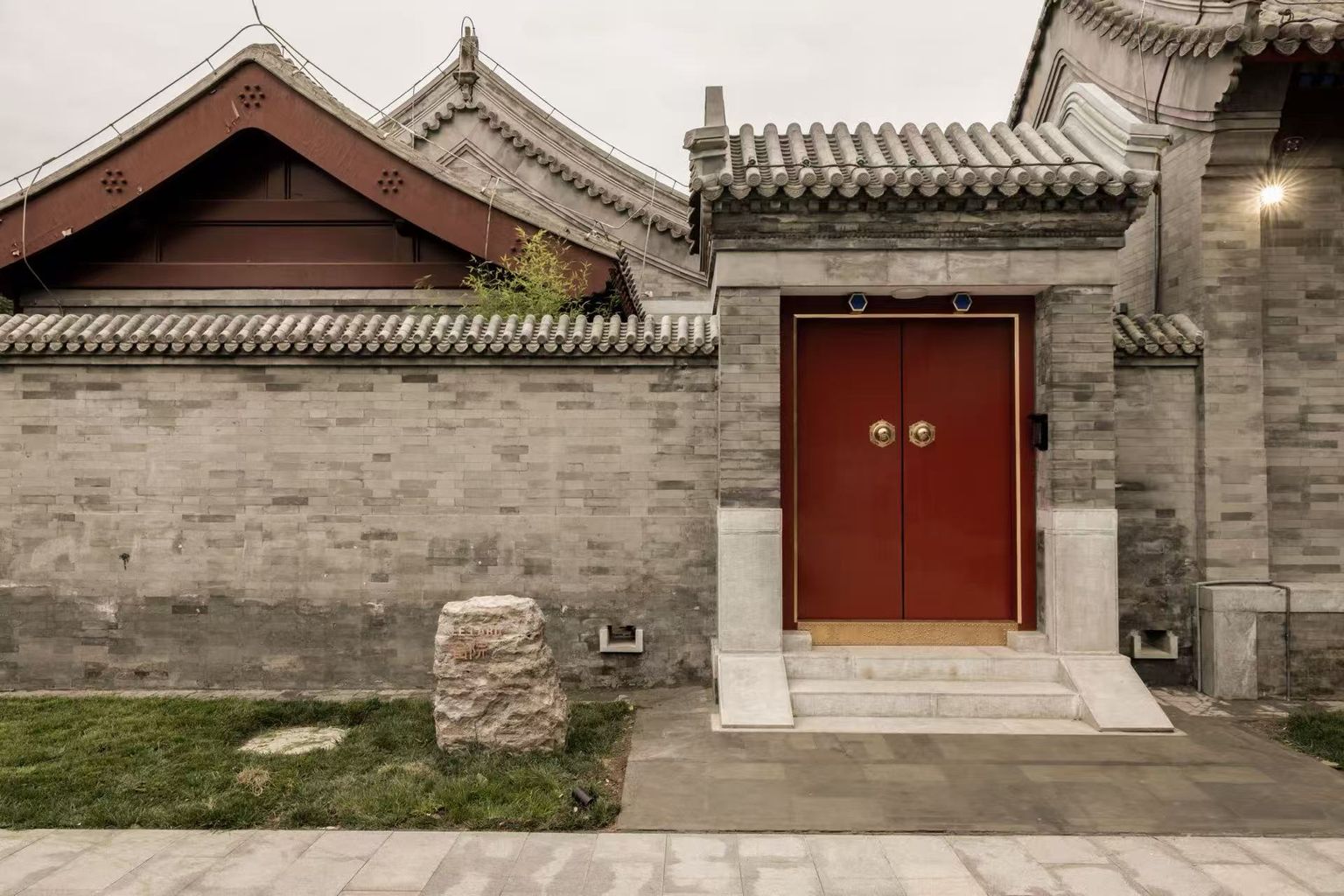
Jingzhi Curates is your daily compass for navigating the dynamic intersections of business, culture, and society. Each installment distills the day’s most pressing issues into thoughtful, actionable insights—perfect for leaders, innovators, and the intellectually curious. Whether a game-changing shift in global markets, a breakthrough in AI, or a cultural trend redefining consumer behavior, Jingzhi Curates delivers clarity in complexity.
In May, Le Labo unveiled its second standalone store in Beijing—Le Labo Beijing Courtyard Fragrance Lab—tucked inside No. 19 Mansion at WF Central. The location, a restored two-entry siheyuan traditional courtyard once belonging to Prince Pujun, cousin of the last emperor Puyi, signals a distinct shift from the brand’s usual industrial minimalism to one that engages more intimately with local culture and context.
Behind the crimson wood doors and through a modest corridor lies a symmetrical courtyard framed by a main hall and two side wings. This enclosed architectural form evokes a sense of domesticity, allowing Le Labo to root its brand narrative in lived Chinese experience rather than aesthetic overlay.
From its site selection to spatial composition, Le Labo’s localized approach here is far from surface-level. The layout mirrors Beijing’s historical texture, while the interior reinterprets traditional herbal pharmacies and residential aesthetics—embedding the brand’s signature wabi-sabi style into a language fluent in Chinese architectural memory.
Just a month prior, Le Labo opened its first street-level store on Shanghai’s Wukang Road. Known as the Le Labo Shanghai Jiya Fragrance Lab, it sits within the contemplative, Zen-inspired space of gathering and replaces the brand’s characteristic aged metals with natural woodwork, allowing it to breathe with the gentle rhythm of the plane-tree-lined former French Concession.
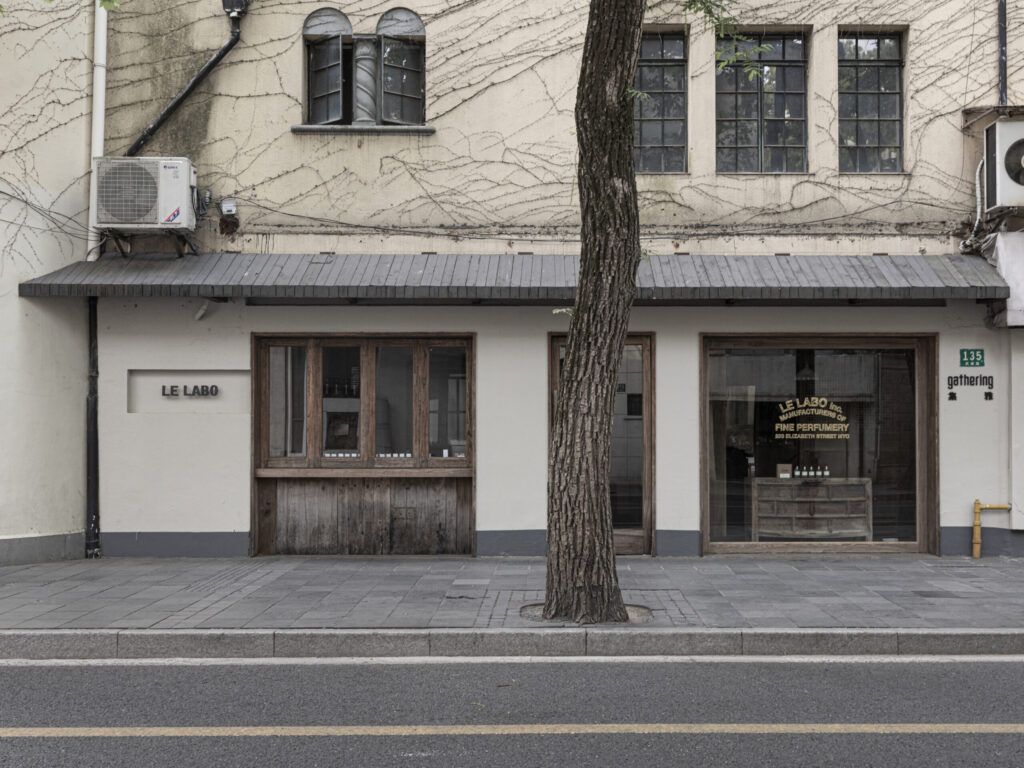
Whether in Shanghai or Beijing, Le Labo is not just opening stores; it’s conversing with the city. These spaces are not designed as spectacles but as lived environments that are organic extensions of the urban fabric. This philosophy has been part of the brand’s DNA since its very first store on Elizabeth Street in New York in 2006, where peeling walls and understated signage marked its resistance to the polished commerciality of typical retail.
This sensitivity also extends to Le Labo’s product design. Its City Exclusive series captures the olfactory soul of specific metropolises. In 2023, Le Labo launched Myrrhe 55, its first City Exclusive fragrance for the China market, an ode to Shanghai’s layered, ever-evolving scentscape.
In this way, Le Labo has long used scent to document place. As Chinese consumers increasingly seek connection in real-world spaces—venturing into neighborhoods, interacting with brands in situ—the brand’s emphasis on locality resonates deeply. Here, the city becomes more than a commercial backdrop; it is a collaborator in cultural memory. This approach not only evokes emotional alignment with consumers but also broadens the brand’s imaginative reach in the market.
Since the opening of its Global Brand Home in Shanghai’s Wulixiang in 2023, Le Labo has quietly grown to 12 stores across mainland China. The pace may seem measured, but its deliberate absence from mainstream e-commerce platforms—and reliance solely on its WeChat Mini Program—underscores its commitment to restraint and intimacy.
This “slow rhythm” in China is no accident. Even in one of the world’s most digitized retail landscapes, Le Labo insists on the store as a primary medium of expression. Through hand-blended perfumes, spatial scent experiences, and personalized labels, each boutique offers a sensory depth that resists digital replication.
This dedication to physical presence aligns with China’s growing preference for experience-driven consumption. According to a recent Klaviyo study, 77 percent of consumers feel more valued when offered personalized services. Le Labo’s brick-and-mortar strategy transforms its stores into emotional touchpoints—sites of shared memory between city and citizen, brand and buyer.
That resonance is paying off. Estée Lauder’s FY2025 Q3 report noted double-digit global growth for Le Labo, with China emerging as a key contributor.
As fragrance brands vie for attention through algorithmic shortcuts, Le Labo instead builds trust through spatial storytelling—slower, quieter, but far more enduring. It listens to the heartbeat of cities and moves in tune with the emotional rhythms of those who live in them. In a crowded market, this low-frequency yet high-quality dialogue is precisely what sets Le Labo apart.






